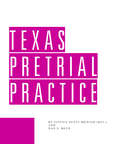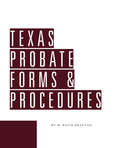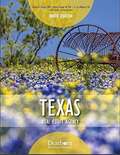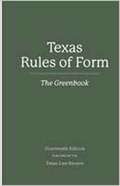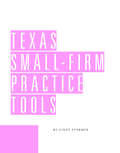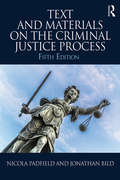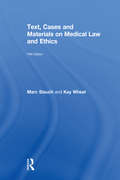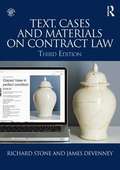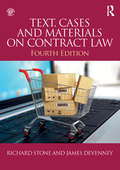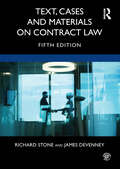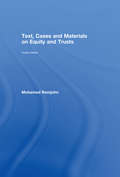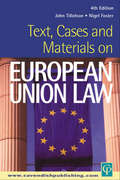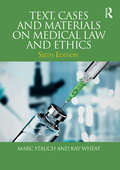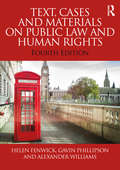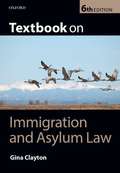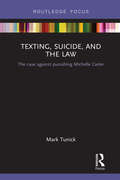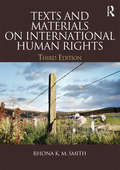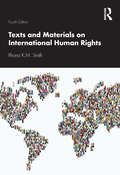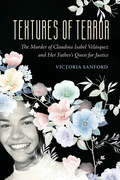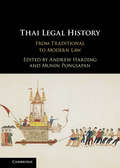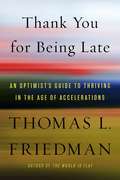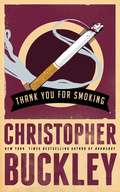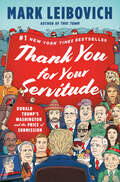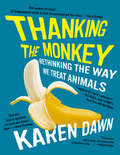- Table View
- List View
Texas Pretrial Practice
by Dan Boyd Scott BristerA step-by-step outline format and proven practice tips help you avoid pitfalls. Procedure and law outlines in the publication are supported by 2,700 case citations summarized in plain English. Texas Pretrial: Step by Step When civil procedure challenges arise, sage advice can make a big difference in your hours, stress, and results. Texas Pretrial Practice probes every step of civil procedure before trial. This problem-solving manual covers each portion of pretrial procedure and focuses on the issues that arise in pleading, motions, and discovery. Chief Justice Scott Brister of the 14th Court of Appeals and veteran Dallas trial lawyer Dan Boyd have set a new standard of excellence for Texas legal resources with thorough coverage of: Jurisdiction & venue Pleadings Citation & service of process Special exceptions Defaults TROs & injunctions Privileges Motion practice Discovery disputes Depositions Requests for admission Inspection of documents Interrogatories Physical & mental exams Settlement & ADR Summary judgment Outline format and tight writing. The frequent headings, short paragraphs, plain English, and clear writing speed your access and understanding. Chapter tabs and a detailed index make searching quick and easy. Proven practice tips. Advantages and disadvantages, cautions, caveats, examples, tactics, tips, and more keep you clear of pitfalls and help you plot strategy. Recent cases. Legal principles are supported with current, summarized cases rather than lengthy string citations with no differentiation. Direct answers to tough discovery questions. Texas Pretrial Practice provides authoritative and direct responses to every discovery issues. And much more--nine detailed chapters are devoted to discovery issues. Procedure and law outlines are supported by 3,200 cases and over 220 forms. Principles of law are illustrated with recent case examples, not strings of undifferentiated case citations. And the book is packed with tips on how to: * Avoid and fix mistakes * Resolve peripheral disputes * Craft better documents * Answer ethical questions * Process cases efficiently * Improve your advocacy Texas Pretrial Practice delivers quick and reliable answers with its fast-access outline format, tight writing, superb scholarship, and extensive citations. Its practice-tested forms speed drafting.
Texas Probate Forms and Procedures
by Keith BranyonNo better timesaver exists than a well-drafted, on-point form. Here are over 170, plus a law-and-procedure outline. Keith Branyon's formbook will help you deal with the ever-increasing pressure to do more in less time, covering each procedural step with: * The relevant code sections. * Summaries of the interpretive cases. * Advice for avoiding common pitfalls. * A complete collection of practice-proven forms. All forms are custom-drafted in plain English specifically for use in Texas by one of the state's top probate practitioners. Here are some of the topics covered by the book's many forms: * Initial representation * Independent administration * Dependent administration * Other options * Creditors * Foreign wills * Contested matters
Texas Rangers: Lives, Legend, And Legacy
by Donaly E. Brice Bob AlexanderAuthors Bob Alexander and Donaly E. Brice grappled with several issues when deciding how to relate a general history of the Texas Rangers. Should emphasis be placed on their frontier defense against Indians, or focus more on their role as guardians of the peace and statewide law enforcers? What about the tumultuous Mexican Revolution period, 1910-1920? And how to deal with myths and legends such as One Riot, One Ranger? <p><p> Texas Rangers: Lives, Legend, and Legacy is the authors’ answer to these questions, a one-volume history of the Texas Rangers. The authors begin with the earliest Rangers in the pre-Republic years in 1823 and take the story up through the Republic, Mexican War, and Civil War. Then, with the advent of the Frontier Battalion, the authors focus in detail on each company A through F, relating what was happening within each company concurrently. Thereafter, Alexander and Brice tell the famous episodes of the Rangers that forged their legend, and bring the story up through the twentieth century to the present day in the final chapters.
Texas Real Estate Agency
by Loretta DeHayYour duties as an agent are important! Make sure you know what's expected. Learn what you need to know to obtain a real estate license and understand relationships created in real estate transactions. The Real Estate License Act (TRELA) requires agency as a course of study for everyone seeking a real estate license. This edition focuses on all statutory topics and ethical standards required by TRELA for a prelicensing core course in agency law. Test your knowledge with exam questions after every unit.
Texas Rules of Form: The Greenbook
by University of Texas School of LawThe 14th edition of The Greenbook includes significant updates, including: The addition of cross-references to the Texas Rules of Appellate Procedure to the petition history tables A new petition history designation: "petition pending" Increased cross-referencing both internally and to The Bluebook Clarification of administrative citations in the Texas Register Updated information about the ongoing codification and revision of Texas statutes A new quick-reference table for rule abbreviations Updated citation examples throughout
Texas Small-Firm Practice Tools
by Cindy StormerThe latest edition of Texas Small-Firm Practice Tools includes updated citations and substantive coverage to reflect the implementation of the Estates Code, as well as new and revised text on a broad range of topics, including: * Business records affidavits * Collateral consequences of a DWI * Criminal discovery under the Michael Morton Act * Management trusts for disabled persons You also receive 31 new and revised forms to help you work more efficiently. Texas Small-Firm Practice Tools is the one resource you need to stay current on Texas law and practice. Order your copy today . . . Texas Legal Checklists Pilots and accountants have long relied on checklists to avoid omissions. Your legal work deserves the same care, especially if you handle a variety of practice areas. Bring order and method to your practice, tackle new areas with confidence, and avoid omissions and wasted effort with the task checklists in Cindy Stormer's Small-Firm Practice Tools. These checklists break big jobs like probating a will, filing a divorce, forming a corporation, preparing for trial, and dozens more into manageable tasks. You receive: Civil litigation checklists Car accident checklists Business checklists Divorce checklists Estate checklists Criminal checklists Over 560 Texas FormsEach of the 16 practice areas in Cindy Stormer's Small-Firm Practice Tools is supported with a: (1) summary of the essential law and procedures, and (2) collection of custom-drafted, time-tested forms in both print and on Jamesforms.com.
Text and Materials on the Criminal Justice Process
by Nicola Padfield Jonathan BildHighlighting key issues in Criminal Justice that students need to consider, the Fifth Edition of this popular text contains a wide and varied selection of materials which help to explain the evolution of the criminal justice process in England and Wales since the early 1990s. Statutes, case law, empirical research and official and unofficial reports, as well as theoretical perspectives and academic comment are woven together and contextualized by the accompanying narrative to provide an authoritative account of the recent development of the criminal justice system. Fully updated, this Fifth Edition explores the issues around: • the introduction of Police and Crime Commissioners; • the contracting out of probation services; • the significant reforms to legal aid funding; • the challenges to trial by jury posed by the internet. This book also helpfully directs students to further reading by chapter to provide next steps for research. Written in an accessible style, Text and Materials on the Criminal Justice Process is a valuable resource for students of criminal justice.
Text, Cases & Materials on Medical Law
by Marc StauchLucid and logical in structure, this new edition, previously entitled Sourcebook on Medical Law draws together a wide range of essential material, including extracts from statutes, cases and academic commentary from medical law; an area which is fast becoming an important part of undergraduate syllabuses.Fully updated to take account of recent developments in this dynamic area of law, it examines two major pieces of legislation: the Mental Capacity Act 2005 and the Human Tissue Act 2004 as well as a significant amount of new case law, including the House of Lords decisions in Chester v Afshar and Gregg v Scott and the Court of Appeal decision in R (on the application of Burke) v GMC and others.Divided into two parts, it covers:the general principles that permeate medical law, exploring illness and the ethics of care and healthcare in England and Wales and consent to treatment, confidentiality and medical malpracticeissues which arise in relation to specific areas of medical treatment, including infertility treatment and surrogacy, pregnancy and abortion, treating the incompetent, the mentally ill, medical research, organ transplants and euthanasia. This textbook is an invaluable reference tool for all those studying medical law as well as those studying medicine.
Text, Cases and Materials on Contract Law
by James Devenney Richard StoneComposed of approximately one-quarter authors' commentaries and three-quarters cases and materials, including academics' articles and extracts from books and Law Commission papers, this book facilitates the development of personal study skills and encourages readers to engage with the leading commentaries in the area. Clearly signposted chapter introductions highlight the salient features under discussion and additional reading collected at the end of each chapter guides further study and independent research. The range of material covered and the straightforward style makes Text, Cases and Materials on Contract Law an invaluable resource for all undergraduate students of contract law.
Text, Cases and Materials on Contract Law
by James Devenney Richard StoneWritten by leading authors in the field, this clear and highly accessible volume provides full coverage of the topics commonly found in the contract law syllabus, alongside up-to-date illustrative case examples and stimulating commentary. Composed of approximately one-quarter authors’ commentaries and three-quarters cases and materials, including academics’ articles and extracts from books and Law Commission papers, this book takes account of a variety of theoretical perspectives, including economic, relational and empirical conceptions of the law. This book facilitates the development of personal study skills and encourages readers to engage with the leading academic commentaries in the area. Features to support your learning include: ? chapter introductions to highlight the salient features under discussion and signpost topics to guide readers through this comprehensive text; ? additional reading listed at the end of each chapter to assist further study and independent research; ? clear and attractive text design that differentiates between the authors’ commentaries and the materials; ? a companion website that provides skills materials and self-assessment tasks to help further your learning. The range of material covered, straightforward style and targeted updates to this fourth edition make Text, Cases and Materials on Contract Law a comprehensive and invaluable resource for all undergraduate and postgraduate students of contract law.
Text, Cases and Materials on Contract Law
by James Devenney Richard StoneWritten by leading authors in the field, this clear and highly accessible volume provides full coverage of the topics commonly found in the contract law syllabus, alongside up-to-date illustrative case examples and stimulating commentary. Composed of approximately one-quarter authors’ commentaries and three-quarters cases and materials, including academics’ articles and extracts from books and Law Commission papers, this book takes account of a variety of theoretical perspectives, including economic, relational and empirical conceptions of the law. This book facilitates the development of personal study skills and encourages readers to engage with the leading academic commentaries in the area. Features to support your learning include: chapter introductions to highlight the salient features under discussion and signpost topics to guide readers through this comprehensive text; additional reading listed at the end of each chapter to assist further study and independent research; clear and attractive text design that differentiates between the authors’ commentaries and the materials; a companion website that provides skills materials and self-assessment tasks to help further your learning. The range of material covered, straightforward style and targeted updates to this fifth edition make Text, Cases and Materials on Contract Law a comprehensive and invaluable resource for all undergraduate and postgraduate students of contract law.
Text, Cases and Materials on Equity and Trusts
by Mohamed RamjohnText, Cases and Materials on Equity and Trusts has been considerably revised to broaden the focus of the text in line with most LLB core courses to encompass equity, remedies and injunctions and to take account of recent major statutory and case law developments. The new edition features increased pedagogical support to outline key points and principles and improve navigation; 'notes' to encourage students to reflect on areas of complexity or controversy; and self-test questions to consolidate learning at the end of each chapter. New to this edition: is a detailed examination of The Civil Partnership Act 2004 and the Charities Act 2006 important case law developments such as Stack v Dowden (constructive trusts and family assets), Oxley v Hiscock (quantification of family assets), Barlow Clowes v Eurotrust (review of the test for dishonesty), Abou-Ramah v Abacha (dishonest assistance and change of position defence), AG for Zambia v Meer Care & Desai (review of the test for dishonesty), Horley Town Football Club (gifts to unincorporated association), Re Loftus (defences of limitation, estoppel and laches), Templeton Insurance v Penningtons Solicitors (Quistclose trust and damages) and many more are new chapters on the equitable remedies of specific performance, injunctions, rectification, rescission and account are extracts from the Law Commission’s Reports and consultation papers on ‘Sharing Homes’ and ‘Trustee Exemption Clauses’ as well as key academic literature and debates. The structure and style of previous editions have been retained, with an emphasis on introductory text and case extracts of sufficient length to allow students to develop analytical and critical skills in reading legal judgments. Substantial author commentary helps the text give the flow, coherence and direction of a textbook whilst providing the reader with a wide range of primary and secondary material from a variety of sources. A supporting Companion Website provides twice-annual updates to the cases and legislation discussed within the text; answers to the questions contained within the text, and sample essay questions. http://www.routledgecavendish.com/textbooks/9780415442947
Text, Cases and Materials on European Union Law
by Nigel Foster John TillotsonText, Cases and Materials on European Union Law provides students with a clear and comprehensive guide to the main constitutional, institutional and substantive features of EU law.
Text, Cases and Materials on Medical Law and Ethics
by Marc Stauch Kay WheatText, Cases and Materials on Medical Law and Ethics presents a valuable collection of materials relating to often controversial areas of the law. Comprising extracts from statutes, cases and scholarly articles alongside expert author commentary and guidance which signposts the key issues and principles, this book is an ideal companion to this increasingly popular subject. Fully revised, this new edition incorporates expanded content, including: updated coverage of consent and decision making, including the the Montgomery v Lanarkshire Health Board (2015) judgment; the impacts of the EC directive for clinical trials and GDPR on the research use of patient data; and discussion of other recent developments in the case law, including the 2017 Charlie Gard litigation, the 2016 Privy Council decision in Williams v Bermuda on negligence causation, and the UK Supreme Court judgment in A & B v SS for Health (2017) on funding for patients from Northern Ireland seeking terminations elsewhere. Providing a comprehensive and up-to-date resource on this topical area of the law, this textbook is an invaluable reference tool for students of medical law as well as those studying medicine.
Text, Cases and Materials on Public Law and Human Rights
by Alexander Williams Helen Fenwick Gavin PhillipsonThis book interweaves an authoritative authorial commentary – significantly expanded from the last edition - with extracts from a diverse and contemporary collection of cases and materials from three leading academics in the field. It provides an all-encompassing student guide to constitutional, administrative and UK human rights law. This fourth edition provides comprehensive coverage of all recent developments, including the Fixed Term Parliaments Act 2011, restrictions on judicial review (Criminal Justice and Courts Act 2015), changes to judicial appointments (Crime and Courts Act 2013), the 2014 Scottish Independence Referendum, Scotland Act 2016 and draft Wales Bill 2016. Recent devolution cases in the Supreme Court, including Imperial Tobacco (2012) and Asbestos Diseases (2015) are fully analysed, as is the 2015 introduction of English Votes for English Laws. The remarkable Evans (2015) ‘Black Spider memos’ case is considered in a number of chapters. The common law rights resurgence seen in Osborn (2013), BBC (2014) and Kennedy (2014) is analysed in several places, along with other key developments in judicial review such as Keyu (2015) and Pham (2015). Ongoing parliamentary reform in both Lords and Commons, including major advances in controlling prerogative powers, are fully explained, as is the adaptation of the core Executive to Coalition Government (2010-2015). There is comprehensive coverage of key Strasbourg and HRA cases (Horncastle (2010), Nicklinson (2014), Moohan (2014), Carlile (2014)), and those in core areas of freedom of expression, police powers and public order (Animal Defenders (2013), Beghal (2015), Roberts (2015), Miranda (2016)) and the prisoners’ voting rights saga, up to Chester (2015).
Textbook on Immigration and Asylum Law
by Gina ClaytonThe sixth edition of Textbook on Immigration and Asylum Law continues to provide students with expert coverage of case law and legislation, along with dynamic analysis of the political context and social impact of the law, and a strong focus on human rights. An essential text for students at all levels, the book deftly guides the reader through this fascinating and constantly developing area of law.
Texting, Suicide, and the Law: The case against punishing Michelle Carter
by Mark TunickIn 2014, Conrad Roy committed suicide following encouragement from his long-distance girlfriend, Michelle Carter, in what has become known as the Texting Suicide case. The case has attracted much attention, largely focusing on the First Amendment free speech issue. This book takes the view that the issue is intertwined with several others, some of which have received less attention but help explain why the case is so captivating and important, issues concerning privacy, accountability, coercion, punishment, and assisted suicide. The focus here is on how all of these issues are interconnected. By breaking the issue down into its complex layers, the work aids reasoned judgment, ensuring we aren’t guided solely by our gut reactions. The book is laid out as a case against punishing Ms. Carter, but it is less important that we agree with that conclusion than that we reach our conclusions not just through our instincts and intuitions but by thinking about these fundamental issues. The work will be of interest to scholars in law, political theory, and philosophy as an example of how theoretical issues apply to particular controversies. It will also appeal to readers interested in freedom of speech and the First Amendment, criminal justice and theories of punishment, suicide laws, and privacy.
Texts and Materials on International Human Rights
by Rhona K.M. SmithText and Materials on International Human Rights offers a carefully tailored overview of the subject, divided into four sections that cover: sources and theories; institutions and structures; substantive rights; and a new concluding section on the challenges for human rights law. The third edition is fully updated to include all key developments, in particular issues around torture, terrorism and international criminal law. This collection of materials offers a comprehensive overview of the institutional structures relevant to international human rights law, crucial to the understanding of how law works in this challenging area. Designed to guide students through the fundamental texts for this subject, the author’s commentary contextualises each extract to explain its relevance, while highlighted further reading makes links to cutting edge academic commentary to provide next steps for student research. Offering a clear text design that distinguishes between materials and author commentary, and including reflective questions throughout to aid understanding, this book is ideal for students seeking to engage with the key issues in the study of International Human Rights.
Texts and Materials on International Human Rights
by Rhona K.M. SmithTexts and Materials on International Human Rights offers a carefully tailored overview of the subject that covers sources and theories, institutions and structures, and substantive rights. The fourth edition is fully updated to include all key developments in the law, in particular issues around reform in the UN and the topical application of human rights around the world. This collection of materials offers a comprehensive overview of the institutional structures relevant to international human rights law, crucial to the understanding of how law works in this challenging area. Designed to guide students through the fundamental texts for this subject, the author’s commentary contextualises each extract to explain its relevance, while highlighted further reading makes links to cutting edge academic commentary to provide next steps for student research. Offering a clear text design that distinguishes between materials and author commentary, and including reflective questions throughout to aid understanding, this book is ideal for students seeking to engage with the key issues in the study of International Human Rights.
Textures of Terror: The Murder of Claudina Isabel Velasquez and Her Father's Quest for Justice (California Series in Public Anthropology #55)
by Victoria SanfordInvestigating the unsolved murder of a female law student and the pervasive violence against Guatemalan women that drives migration. Part memoir and part forensic investigation, Textures of Terror is a gripping first-person story of women, violence, and migration out of Guatemala—and how the United States is implicated. Accompanying Jorge Velásquez in a years-long search for answers after the brutal murder of his daughter Claudina Isabel, Victoria Sanford explores what it means to seek justice in "postconflict" countries where violence never ended. Through this father's determined struggle and other stories of justice denied, Textures of Terror offers a deeper understanding of US policies in Latin America and their ripple effect on migration. Sanford offers an up-close appraisal of the inner workings of the Guatemalan criminal justice system and how it maintains inequality, patriarchy, and impunity. Presenting the stories of other women who have suffered at the hands of strangers, intimate partners, and the security forces, this work reveals the deeply gendered nature of power and violence in Guatemala.
Thai Legal History: From Traditional to Modern Law
by Andrew Harding Munin PongsapanThis is the first book to provide a broad coverage of Thai legal history in the English language. It deals with pre-modern law, the civil law reforms of the late 19th and early 20th centuries, and the constitutional developments post-1932. It reveals outstanding scholarship by both Thai and international scholars, and will be of interest to anyone interested in Thailand and its history, providing an indispensable introduction to Thai law and the legal system. The civil law reforms are a notable focus of the book, which provides material of interest to comparative lawyers, especially those interested in the diffusion of the civil law.
Thank You For Being Late: An Optimist's Guide To Thriving In The Age Of Accelerations
by Thomas L. FriedmanA field guide to the twenty-first century, written by one of its most celebrated observers<P><P> We all sense it―something big is going on. You feel it in your workplace. You feel it when you talk to your kids. You can’t miss it when you read the newspapers or watch the news. Our lives are being transformed in so many realms all at once―and it is dizzying.<P> In Thank You for Being Late, a work unlike anything he has attempted before, Thomas L. Friedman exposes the tectonic movements that are reshaping the world today and explains how to get the most out of them and cushion their worst impacts. You will never look at the world the same way again after you read this book: how you understand the news, the work you do, the education your kids need, the investments your employer has to make, and the moral and geopolitical choices our country has to navigate will all be refashioned by Friedman’s original analysis.<P> Friedman begins by taking us into his own way of looking at the world―how he writes a column. After a quick tutorial, he proceeds to write what could only be called a giant column about the twenty-first century. His thesis: to understand the twenty-first century, you need to understand that the planet’s three largest forces―Moore’s law (technology), the Market (globalization), and Mother Nature (climate change and biodiversity loss)―are accelerating all at once. These accelerations are transforming five key realms: the workplace, politics, geopolitics, ethics, and community.<P> Why is this happening? As Friedman shows, the exponential increase in computing power defined by Moore’s law has a lot to do with it. The year 2007 was a major inflection point: the release of the iPhone, together with advances in silicon chips, software, storage, sensors, and networking, created a new technology platform. Friedman calls this platform “the supernova”―for it is an extraordinary release of energy that is reshaping everything from how we hail a taxi to the fate of nations to our most intimate relationships. It is creating vast new opportunities for individuals and small groups to save the world―or to destroy it.<P> Thank You for Being Late is a work of contemporary history that serves as a field manual for how to write and think about this era of accelerations. It’s also an argument for “being late”―for pausing to appreciate this amazing historical epoch we’re passing through and to reflect on its possibilities and dangers. To amplify this point, Friedman revisits his Minnesota hometown in his moving concluding chapters; there, he explores how communities can create a “topsoil of trust” to anchor their increasingly diverse and digital populations.<P> With his trademark vitality, wit, and optimism, Friedman shows that we can overcome the multiple stresses of an age of accelerations―if we slow down, if we dare to be late and use the time to reimagine work, politics, and community. Thank You for Being Late is Friedman’s most ambitious book―and an essential guide to the present and the future. <P><b>A New York Times Bestseller</b>
Thank You for Smoking
by Christopher BuckleyNobody blows smoke like Nick Naylor. He's a spokesman for the Academy of Tobacco Studies-in other words, a flack for cigarette companies, paid to promote their product on talk and news shows. The problem? He's so good at his job, so effortlessly unethical, that he's become a target for both anti-tobacco terrorists and for the FBI. In a country where half the people want to outlaw pleasure and the other want to sell you a disease, what will become of the original Puff Daddy?
Thank You for Your Servitude: Donald Trump's Washington and the Price of Submission
by Mark LeibovichFrom the author of the #1 New York Times bestseller This Town, the eyewitness account of how the GOP collaborated with Donald Trump to transform Washington’s “swamp” into a gold-plated hot tub—and a onetime party of rugged individualists into a sycophantic personality cult. <p><p>In the early months of Trump’s candidacy, the Republican Party’s most important figures, people such as Marco Rubio, Ted Cruz, and Lindsey Graham, were united—and loud—in their scorn and contempt. Even more, in their outrage: Trump was a menace and an affront to our democracy. Then, awkwardly, Trump won. <p><p>Thank You for Your Servitude is Mark Leibovich’s unflinching account of the moral rout of a major American political party, tracking the transformation of Rubio, Cruz, Graham, and their ilk into the administration’s chief enablers, and the swamp’s lesser lights into frantic chasers of the grift. What would these politicos do to preserve their place in the sun, or at least the orbit of the spray tan? What would they do to preserve their “relevance”? Almost anything, it turns out. <p><p>Trump’s savage bullying of everyone in his circle, along with his singular command of his political base, created a dangerous culture of submission in the Republican Party. Meanwhile, many of the most alpha of the lapdogs happily conceded to Mark Leibovich that they were “in on the joke.” <p><p>As Lindsey Graham told the author, his supporters in South Carolina generally don’t read The New York Times, and they won’t read this book, either. All that cynicism, shading into nihilism, led to a country truly unhinged from reality, and to the events of January 6, 2021. It’s a vista that makes the Washington of This Town seem like a comedy of manners in comparison. <p><p>Thank You for Your Servitude isn’t another view from the Oval Office: it’s the view from the Trump Hotel. We can check out any time we want, but only time will tell if we can ever leave. <p> <b>New York Times Bestseller</b>
Thanking the Monkey: Rethinking the Way We Treat Animals
by Karen DawnThe animal rights movement has reached a tipping point. No longer a fringe extremist cause, it has become a social concern that leading members of society endorse and young people embrace. From Michael Vick's dog fighting scandal to CNN’s airing of the eye-opening film Blackfish, animal rights issues have hit the headlines—and are being championed by students and senators, pop stars and producers, and actors and activists.Don't you want to be part of the conversation? In Thanking the Monkey, Karen Dawn covers pets, fur, fashion, food, animal testing, activism, and more. But as the title playfully suggests, this isn't like any previous animal rights book. Thanking the Monkey is light on lectures meant to make you feel guilty if you're not yet a leather-eschewing vegan. It lets you have fun as you learn why so many of your favorite actors and musicians won't eat or wear animals. And you'll laugh over scores of cartoons by Dan Piraro'sBizzaro and other animal-friendly comics.This fun primer for a smart and socially committed generation delivers some serious surprises in the form of facts and figures about the treatment of animals. Yes, it will shock you with tales of primates still used in animal testing on nicotine or killed for oven cleaner. But it will also let you lighten up and laugh a little as we work out how to do a better job of thanking the monkey.
